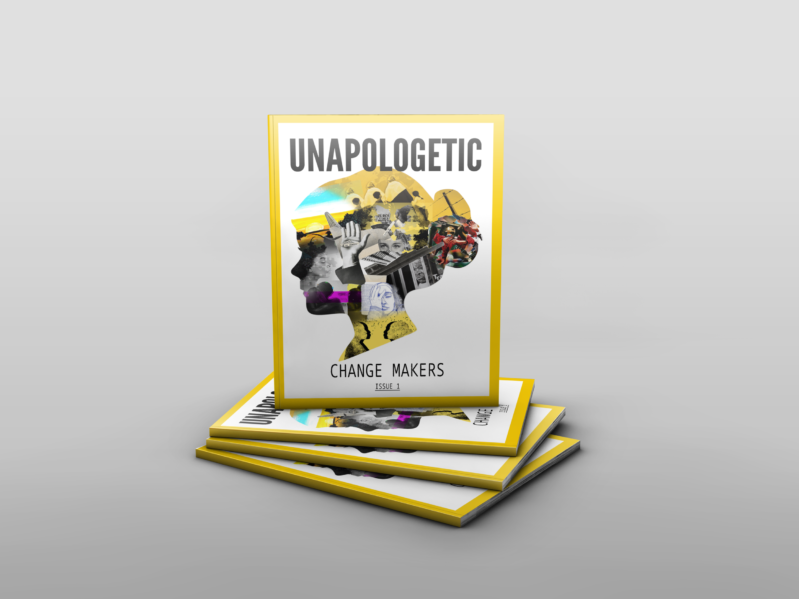
When the first issue of Unapologetic was released in October 2021, it was a hit. The idea for the magazine to act as a space for marginalised people to express their experiences came to co-editor Sandrine Uwase Ndahiro in December 2020, when the George Floyd murder was still fresh on everyone’s minds. Despite reflecting the spirit of the Black Lives Matter (BLM) protests in America, there was enough racism and marginalisation of minority communities in Ireland to fill the pages of Unapologetic on its own.
Prior to the release of the magazine, Uwase Ndahiro directed a documentary titled Unsilencing Black Voices, in which she highlighted the lived experiences of the black community in Ireland through people’s encounters with racism. “I remember with the documentary, a lot of people were … very nervous about showing their faces or their voices”, Uwase Ndahiro reflected. In light of this, Unapologetic was opened to writers across marginalised backgrounds including members of the Travelling community, the LGBTQIA+ community, and residents in Direct Provision centres.
“I didn’t want to just make it a black and Irish issue, I wanted to kind of…open it up,” Uwase Ndahiro explained, which led her to enlist her co-editors Gareth Brinn, a member of the LGBTQ+ community, and Professor Margaret Harper of the University of Limerick. This strong foundation allowed Uwase Ndahiro and her colleagues to venture even further when it came to electing board members, something that took the trio five months to curate. “With the magazine, we wanted it to be a home for creatives, artists, academics, and activists, so we wanted to make sure the board members reflected this.”
As for the theme, “we wanted to leave this as loose as possible,” which is why they chose to go with “Changemakers”. The first content call was very successful, receiving over 100 pages of contributions by the time submissions closed. Uwase Ndahiro also added that many contributors had kept their pieces for years because they had “nowhere to put it.”
If this tells us anything, it is that we need to cultivate more spaces like these within the Irish literary sphere. When asked how that could happen, Uwase Ndahiro mentioned “workshops in schools from … better encouragement of underrepresented voices … [and by] supporting the creation of new literary magazines, zines, blogs, [and] just encourage[ing] people to continuously write.”
Essentially, Unapologetic is about continuing the conversation that began after the BLM protests nearly two years ago, but with a focus on Ireland. It is about realising that although in Ireland acts of racism and homophobia do not always capture media attention the way American incidents would, they do exist, and it’s important to have a space to discuss that.






